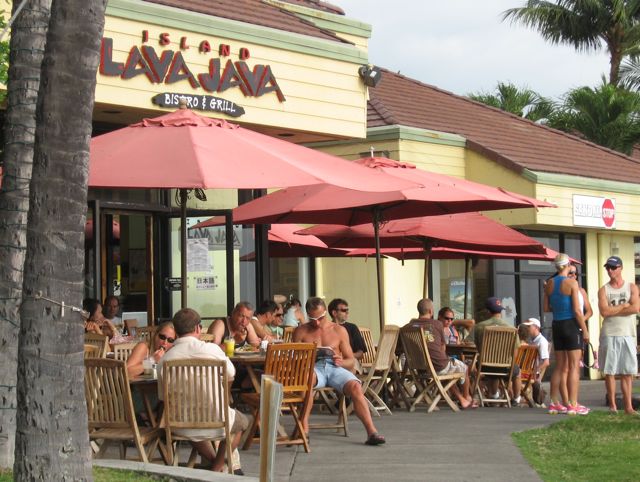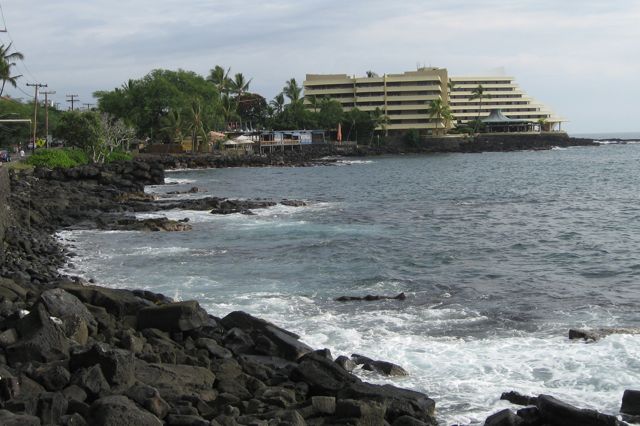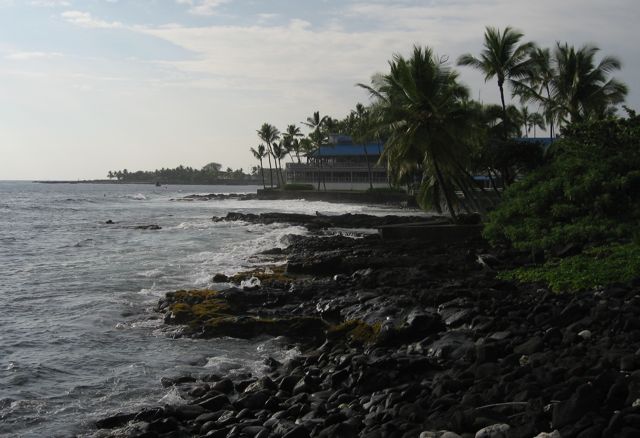All right, fun’s over, I’ve got a race in one week. One more day of actual training, then five day’s worth of nervous fidgeting and shake out sessions. At some point, I have to make a plan. I really SHOULD have a plan.
The environment here seems to conspire against pre-ordination. But there also must be a secret for success, that some are able to unlock. Every year, some one wins the race. And often, it’s someone who’s won before, or who seems like an inevitable victor. 45 out of 60 overall winners (male and female) have won the race more than once.
There are many parts to their secret for success, and the winners are all open and willing to share them. The problem is, most of the rest of us have a tough time either (a) understanding what they are saying, or (b) believing they speak the truth, or (c) doing the work needed to put the secrets into action.
I don’t profess to know the answers. But I am here to do the best I can, given my innate talents, multi-year training, and the conditions of the day. Merely listing all the things I need to have done up to now, and will need to do before and during the race, would take a book. But I will turn to a very experienced cycling and triathlon coach, who recently gave a summary of what he believes a person needs to be successful.
Joe Friel, now over sixty, has been training endurance athletes for 30 years. He wrote the book on triathlon preparation, “The Triathlete’s Training Bible.” Here’s what he has to say on what is needed to achieve athletic excellence (excerpted from his blog of Sept 23rd, 2009):
“Excellence is not for everyone. It’s far too difficult for the great majority of those who participate in sport. In fact, those who seek excellence are often ridiculed because they are different from their peers. … [Those who seek and achieve excellence exhibit these characteristics:]
• Motivation. This one is more important than all of the others combined. If the athlete isn’t motivated excellence is highly unlikely. In fact, the other predictors won’t even exist without motivation. This goes well beyond giving lip service to goals. The truly motivated athlete is on a mission and has a hard time keeping himself or herself in check. … If you are motivated then all of the following predictors of excellence will fall into place eventually.
• Discipline. The disciplined athlete will make daily sacrifices and make due with hardships in order to excel. This person doesn’t miss workouts short of a disaster. Weather is an insignificant factor. The disciplined athlete knows that the small stuff is important. He or she doesn’t get sloppy with diet, recovery, equipment or anything else that has to do with goals. Discipline is not easy. Others can accept motivation, but they have a hard time dealing with people who are disciplined. You’ve got to make light of or even hide your discipline if you want to be accepted by your peers.
• Confidence. Some people seem to live life completely with an unwavering belief in themselves and their actions. These folks are indeed rare. I’ve met very few athletes who didn’t have some concerns about how well suited they were for whatever the task at hand may be. There’s a sliding scale of confidence. Most of us are somewhere in the middle. To move closer to the high-confidence end all we typically need is some success. Success breeds confidence.
• Focus. This could also be called purpose; the athlete knows where he or she wants to go in the sport. Daily training is a purposeful activity that will lead to excellence. Each workout (and accompanying recovery) is a small building block that eventually results in excellence. But you have to take it one step at a time, which brings us to the last predictor, patience.
• Patience. According to Malcolm Gladwell in his book “The Outliers” it takes about 10,000 hours for a person to become a master of anything. I had never tried to quantify it in terms of hours, but experience told me that performing at the highest level in sport takes something on the order of 10 years of serious training regardless of when you started in life. … Patience also has another level that goes beyond this long-term approach to success. This is a more immediate, daily component associated with the ability to pace appropriately early in workouts and races. Athletes who seem unable to learn this skill are less likely to be successful than those who master it.
Notice that I didn’t say anything about innate talent, physiology, skills, or even experience in the sport. All of these things can be developed and learned if the other predictors are there. I’ve never met anyone who didn’t have the capacity to develop each of these mental abilities. … But no one achieves their levels of accomplishment without being highly motivated, disciplined, focused and patient.”
While Friel has given us food for thought, I would add that excellence is relative. EVERYONE, no matter what they are doing, or what their current level of achievement, has an opportunity to excel. The problem is, the better one gets, the harder it is to improve. A Tour de France rider, when asked what he noticed about his progression from amateur teenage racer up thru the professional ranks, said, “It doesn’t get any easier; it just gets faster.”
Today was a real confidence builder for me. I went back to the nemesis portion of the bike ride for me, the lava fields and the lower hills to Hawi. I went 54 miles in just under 3 hours. based on that, I really think I can go under 12 hours in this race. 12 hours +/- 30 minutes. The more I’m under, the better I’ll feel; the more I’m over, the less satisfied I’ll be.
The problem with predictions here, though, is the wind can play havoc with one’s plans. So, I also have a qualitative goal. It’s kind of cheesy, but in the end, I want to feel at the end of the race that I did the best I could. There are numbers one can use to test that, specifically heart rate and power readings on the bike, and total time on the run (which is least affected by environmental conditions, believe it or not.) So, I want to see an average HR of close to 120, and average watts of 160-170. For you power geeks, remember that includes time spent coasting down hill with 0 watts; I’ll probably be rolling at 180 or so when I’m actually pedaling. And for my run, I really want to average 9:20 per mile, slower for the first six miles, for an overall time of 4:08:30. I know I’m capable of that, even here in this environment, if I just keep myself properly in check on the bike.
So an stretch goal set of splits would be 1:20 for the swim; 8 minutes for the transitions (4 min each); 6:02 for the bike; and 4:10 for the run, for 11:40 total time. I know I can do that, I just hope I can work with the Island to make it happen.
Here is the view from Lava Java to the Bay.



